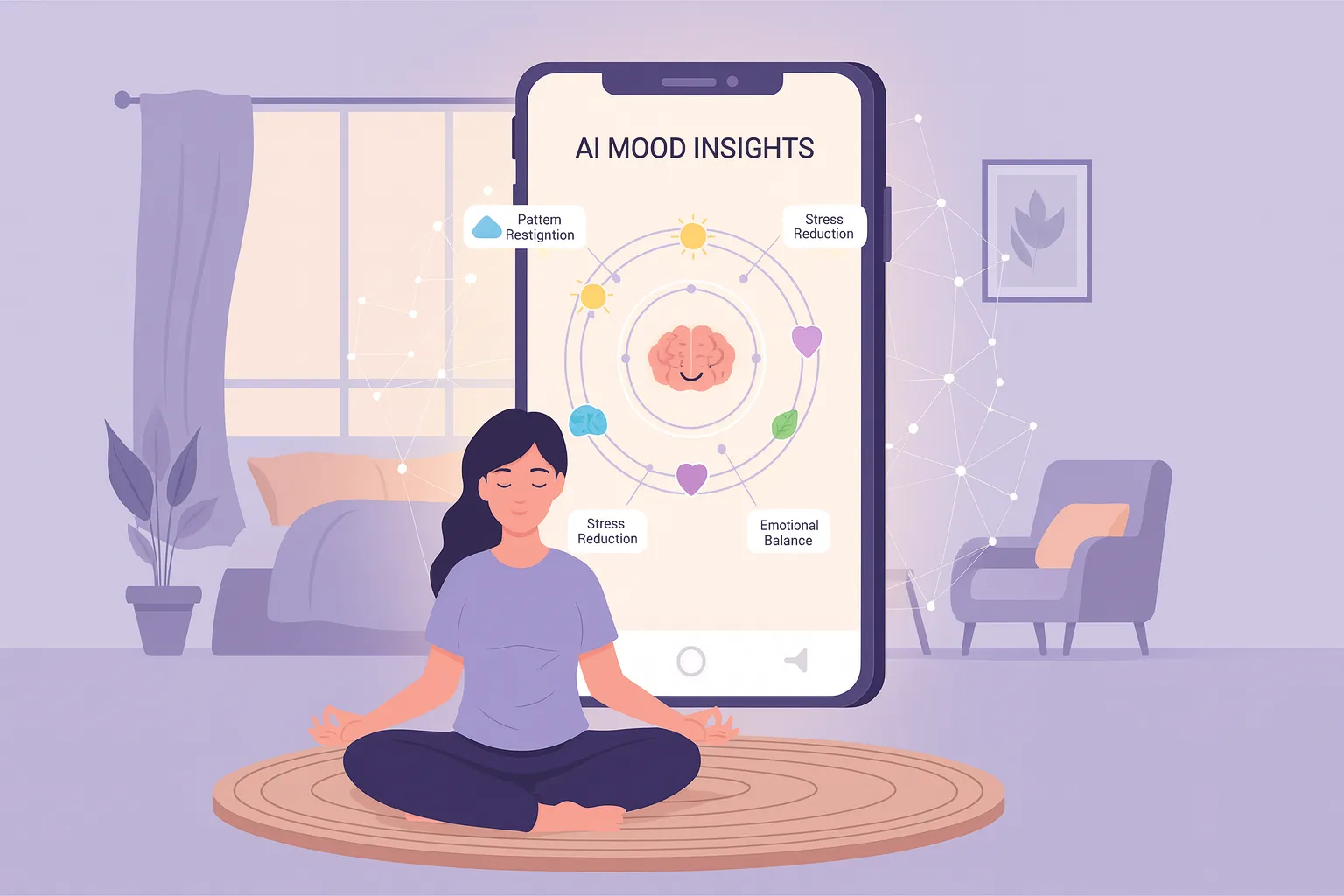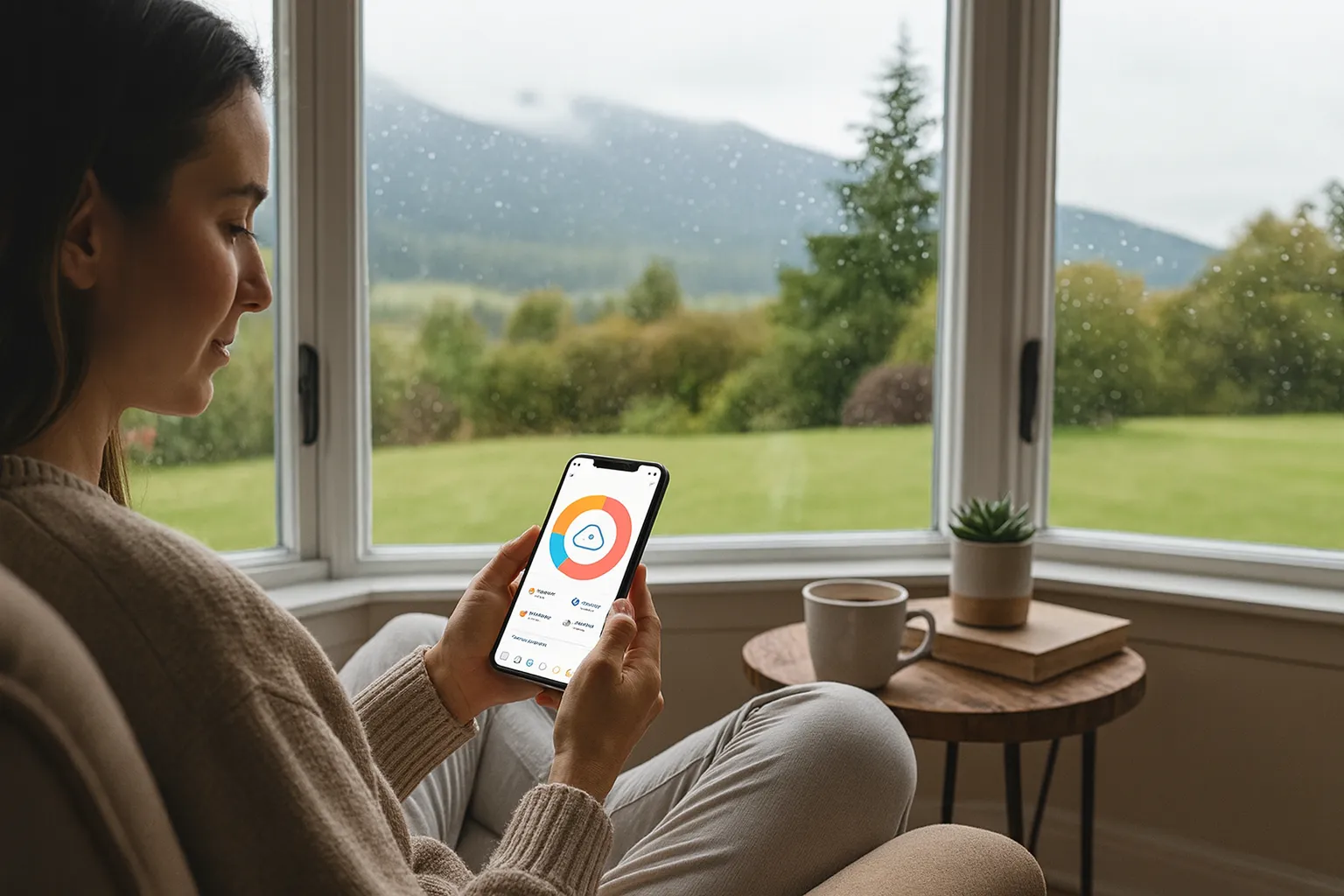When we think of mental health, we often imagine therapy sessions or meditation, but what if artificial intelligence could also become part of your support system?
From chatbots that offer emotional check-ins to mood-tracking apps that detect early signs of anxiety, AI is quietly reshaping the way we understand and manage mental well-being. Instead of replacing human care, these tools are designed to complement it, helping people recognize patterns, access support faster, and make more informed decisions about their mental health.
But not all apps are created equal. Some can genuinely empower users, while others may overwhelm, confuse, or even give misleading information. So, what makes an AI-powered mental health app truly helpful?
Here’s what the best ones tend to do right:
✅️ They personalize support
AI can analyze your responses, tone, or activity patterns to adapt the experience.
📍Example: An app that suggests relaxation exercises after detecting stress patterns in your daily log.
✅️ They protect your privacy
Mental health data is highly sensitive. Responsible apps use encryption and allow users full control over their information.
📍Better approach: Always check if the app is transparent about how it stores or shares data.
✅️ They guide, not diagnose
AI can identify potential red flags, but it should never replace professional evaluation.
📍Better approach: Choose apps that include disclaimers and encourage follow-up with licensed professionals.
✅️ They encourage consistent habits
Regular reflection and small daily actions make the biggest difference.
📍Better approach: Look for apps that reward consistency — like journaling streaks or mood tracking reminders.
✅️ They blend empathy with accuracy
Tone matters. A well-designed chatbot should feel supportive, not robotic or judgmental.
📍Better approach: Tools that use natural, compassionate language improve user engagement and trust.
🔷️ Real-Life Example
Wysa: The Empathetic Chatbot Therapist
One standout example is Wysa, an AI-based mental health app used by millions worldwide. It offers 24/7 emotional support through a chatbot that listens, reflects, and suggests evidence-based exercises. Behind its friendly interface, Wysa uses machine learning to tailor conversations to the user’s mood and progress, always emphasizing privacy and human backup when needed.
This balance between technology and empathy is what defines the new frontier of mental health care. The future isn’t about replacing therapists, it’s about expanding access, awareness, and compassion through intelligent digital tools.
🔷️ Key Insight: Technology with a Human Heart
AI-powered mental health apps are not a replacement for therapy, they are bridges. They connect people with self-awareness, early support, and daily structure when professional help isn’t immediately available.
As artificial intelligence continues to evolve, the goal isn’t to make mental health care colder or more robotic, but to make it more accessible, personalized, and empathetic.
If you’re considering using one, start small: explore features, read privacy policies, and notice how the app makes you feel.
Because the best technology in mental health isn’t the smartest, it’s the one that truly understands you.



